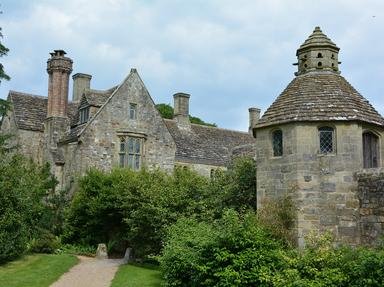Quiz Answer Key and Fun Facts
1. Jane Austen's last completed work was a poem written on her deathbed in Winchester . What was its subject?
2. When Anna Parker wrote her letter, who had she murdered?
3. What was Charlotte Lutterell obsessed with?
4. Jane Austen's "Plan of a novel" prescribes a generic plot outline which any successful novel ought to follow.
5. In "The History of England by a partial, prejudiced and ignorant historian", Austen slates Elizabeth I for her treatment of Mary Queen of Scots. In her very first sentence in this entry, however, she mitigates this criticism. How?
6. With what do each of Jane Austen's prayers end?
7. Maria Williams is to Lady Greville as Elizabeth Bennett is to...who?
8. In "A tour through Wales in a letter from a young lady", why did the writer walk the whole way?
9. What's the mystery about the short play "The Mystery"?
10. Which of the following is true of Mr and Mrs Webb?
11. Why did Charlotte drown herself?
12. Who was the ugly one - Jezalinda or Rebecca?
13. What's the gag about the hero in the story "Jack and Alice"?
14. In "Love and Friendship", why can Sophia not stand Laura mentioning the lovely azure sky delicately streaked with white?
15. Why did Edward Stanley return to England so precipitately?
16. True or false: Mary Stanhope loves her prospective husband, Mr Watts.
17. What is the furthest point from Britain that Jane Austen mentions in her Juvenilia and minor works?
18. In the play "The visit", Sir Arthur Hampton never speaks or eats, despite the last scene being a banquet at which he is asked several questions.
19. How did Eliza's two children let her know that they were hungry?
20. Upon Mr Harley's return to England after a sea trip of six months, he sets off in a coach for Hogsworth Green. Among the coach's passengers he notices a young wife, about seventeen, with fine dark eyes and an elegant shape. Whose wife is she?
21. What is Jane Austen's only completely serious piece of juvenilia?
22. Why is the hollow oak that Benjamin Bar chooses as a postbox for his correspondence with Sally Hervey one mile from his house and seven from hers?
23. For how many days and how many nights did Wilhelmus travel without stopping before he reached his cottage?
24. Mr Clifford orders a whole ____ to be boiled for him and his servants
25. Why did the beautiful Cassandra set out on her adventure?
Source: Author
anselm
This quiz was reviewed by FunTrivia editor
agony before going online.
Any errors found in FunTrivia content are routinely corrected through our feedback system.
